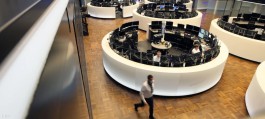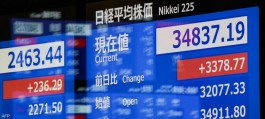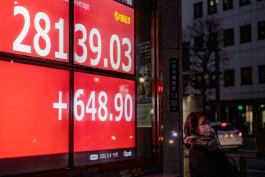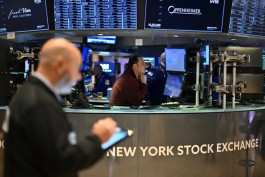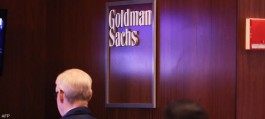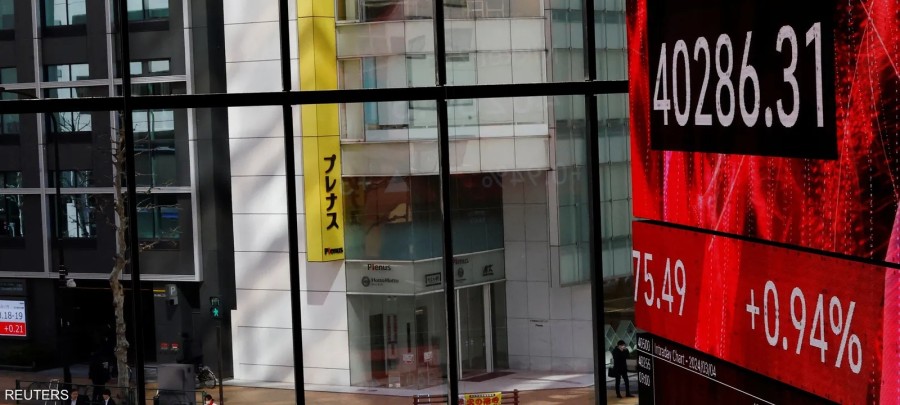Asian stocks fell on Friday, following a decline on Wall Street in one of its worst days since last April, amid concerns about excessively high share prices for technology companies such as chipmaker Nvidia and artificial intelligence firms.
South Korea’s Kospi index led the decline in Asian indices, falling 3.8 percent to 4011.6 points, amid heavy selling of technology stocks.
Shares of Samsung Electronics lost 5.5 percent of their value, SK Hynix shares fell by 8.5 percent, and LG Energy Solutions shares by 4.4 percent.
Taiwan's Taix index fell by 1.8 percent.
In Japan, the Nikkei 225 index fell by approximately 1.8 percent to 50,376 points, erasing the gains it had made the previous day. SoftBank Group shares led the decline, with their value falling by 6.6 percent.
In the Chinese markets, Hong Kong’s Hang Seng Index fell 2 percent to 26,540 points, while the Shanghai Composite Index declined 1 percent to 3,990.49 points.
Economic data released on Friday showed that China's factory output grew last month at an annual rate of 4.9 percent, its lowest rate in 14 months, compared to 6.5 percent in September, while it was expected to grow by 5.5 percent.
In Australia, the S&P/ASX 200 index fell 1.4 percent to 8,634 points, as hopes faded that the Reserve Bank of Australia would cut interest rates following a report on the strength of the labor market.
India's BSE Sensex index fell by 0.3 percent.
US stocks fell sharply in trading on Thursday, with shares of chipmaker Nvidia and other artificial intelligence technology companies in particular declining.
The market was also affected by doubts about the upcoming interest rate cuts that the market had bet on in the days leading up to them.
The broader Standard & Poor's 500 index fell 113 points, or 1.7 percent, to 6,736, moving further away from its all-time high reached late last month. The Dow Jones Industrial Average lost 797 points, or 1.7 percent, to 47,457, while the Nasdaq Composite dropped 563 points, or 2.3 percent, to 22,870.
Nvidia's stock had the largest weight in the market, after losing 3.6 percent.
Shares of other leading artificial intelligence companies also suffered, including Supermicrocomputer, down 7.4 percent, Palantir Technologies, down 6.5 percent, and Broadcom, down 4.3 percent.
Questions are growing about whether AI giants can sustain their already impressive gains. For example, Palantir saw a remarkable surge earlier this month, with its year-to-date gains reaching 174 percent.
This remarkable performance was a major factor in the US market reaching record highs despite a sluggish labor market and rising inflation. However, artificial intelligence stock prices skyrocketed, to the point that critics likened it to the tech bubble of 2000, which eventually burst and caused the S&P 500 to lose nearly half its value at the time.
At the same time, stocks outside the artificial intelligence sector also declined due to fears that the anticipated economic data would convince the Federal Reserve (the US central bank) to halt interest rate cuts, which could boost the economy but could also exacerbate inflation.
















